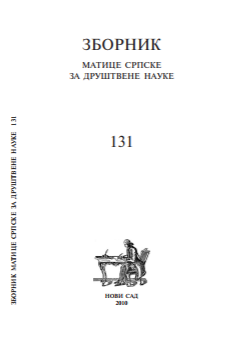ИСКУСТВА ФИНСКЕ У ПРОНАТАЛИТЕТНОЈ ПОЛИТИЦИ
EXPERIENCES OF FINLAND RELATED TO THE PRO-NATAL POLICY
Author(s): Dragana PaunovićSubject(s): Politics, Health and medicine and law, Family and social welfare, Demography and human biology
Published by: Матица српска
Keywords: reproductive health; population policy; prenatal care; contraception;
Summary/Abstract: In the last 30 years Finland has been more than successful in conserving and promoting the reproductive health. In comparison to the early 70s Finland has managed, with well organized social action which includes easy access to the contraceptive means, developed network of family planing services and obligatory sexual education in schools, to decrease the number of abortions. Other indicators of reproductive health in Finland also show that it is the one of the best in the world. The role of the state in decreasing the costs of parenthood is also very important. That include maternal leave, which both parents are entitled to, maternal money support up to 80 euros per day, and maternal package, which includes clothes and other necesassary things for the first year of the newborn. Finland has a long tradition and experience in institutional backgrounds for defining and implementing the pro-natal policy. The goveremental institution Väestöliitto has been promoting the planning of the family very successfully for the last 50 years. The main focuses of this organization are: public health, imrproving the living conditions, welfare of children and improving the financial situation of the families. Therefore, it seems that Finland is a good example for all countries that want to improve their population policy in the area of reproductive health and family planing.
Journal: Зборник Матице српске за друштвене науке
- Issue Year: 2010
- Issue No: 131
- Page Range: 55-65
- Page Count: 11
- Language: Serbian

